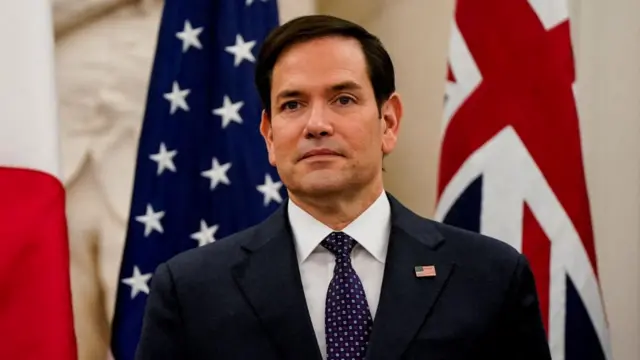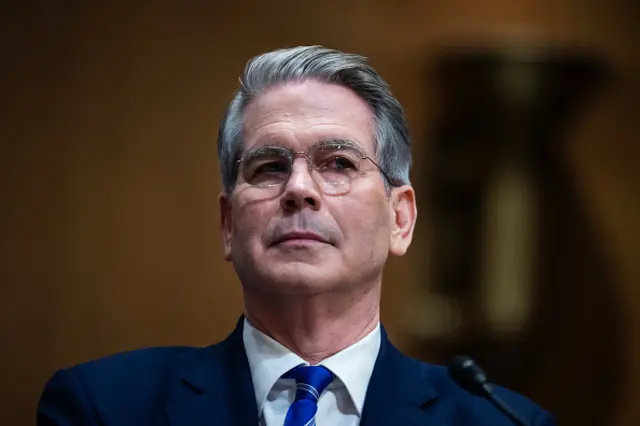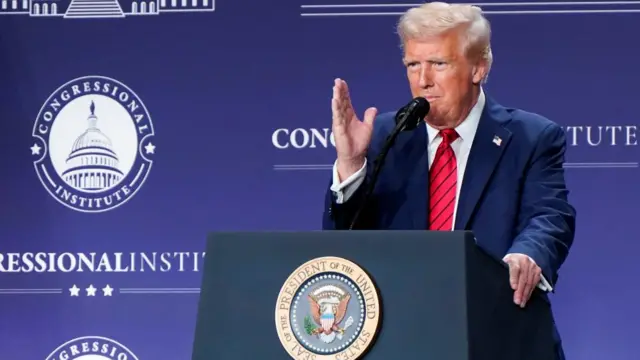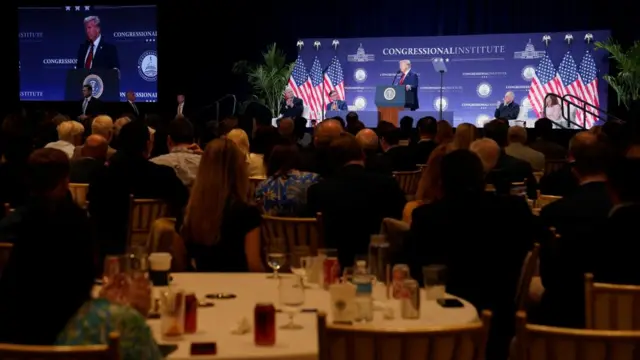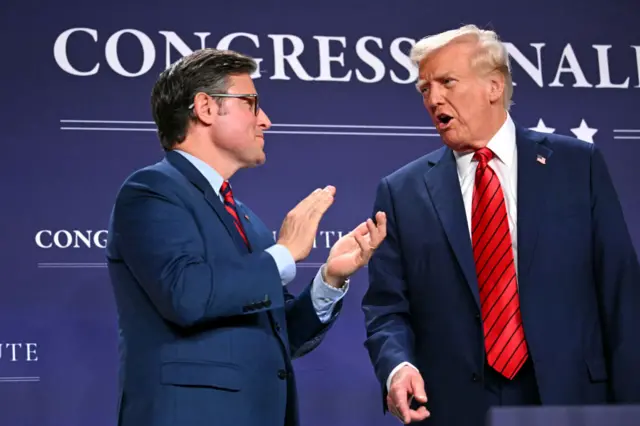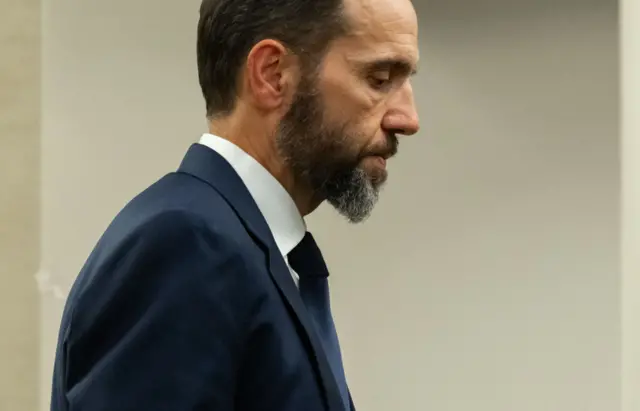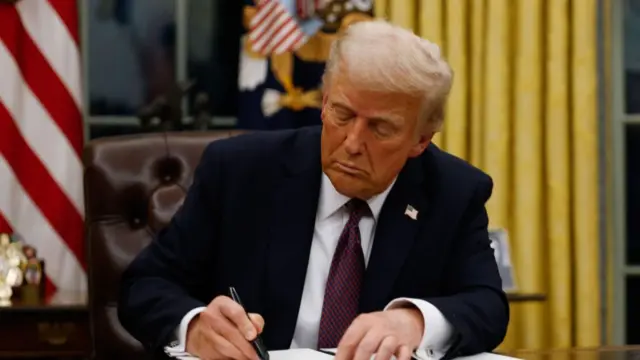Trump pledges military executive orders as he issues DeepSeek 'wake-up call'published at 02:59 GMT 28 January
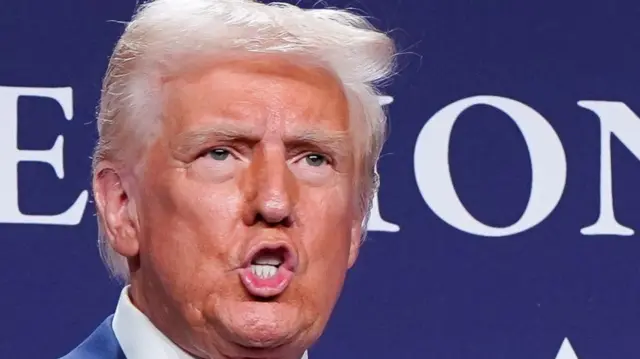 Image source, Reuters
Image source, ReutersLet's wrap-up some of the key moments from the last few hours on the one-week anniversary of Donald Trump's return to the White House.
In a wide-ranging address in Miami, Trump told a Republican congressional retreat that he intends to sign three executive orders which relate to transgender military service members, reinstating troops who were discharged for refusing the Covid vaccine, and diversity, equity and inclusion programmes.
Trump also said he would sign another executive order to start building an "Iron Dome" air defence system for the United States - similar to the one that Israel has used to intercept thousands of rockets.
He also said news of the Chinese DeepSeek app, which was launched last week and has overtaken rivals including ChatGPT to become the most downloaded free app in the US, should serve as a "wake-up call" to the US tech industry.
Also on Monday, Trump's pick for treasury secretary was confirmed by the Senate in a 68-29 vote, and several Department of Justice staffers who had worked under Special Counsel Jack Smith were dismissed.
Elsewhere in government, nearly 60 diversity, equity and inclusion staffers from the Department of Veteran's Affairs were put on leave.
We are ending our live coverage of today's events in US politics, but you can stay up to date on the major news lines below.
Trump administration fires justice department lawyers who investigated him
